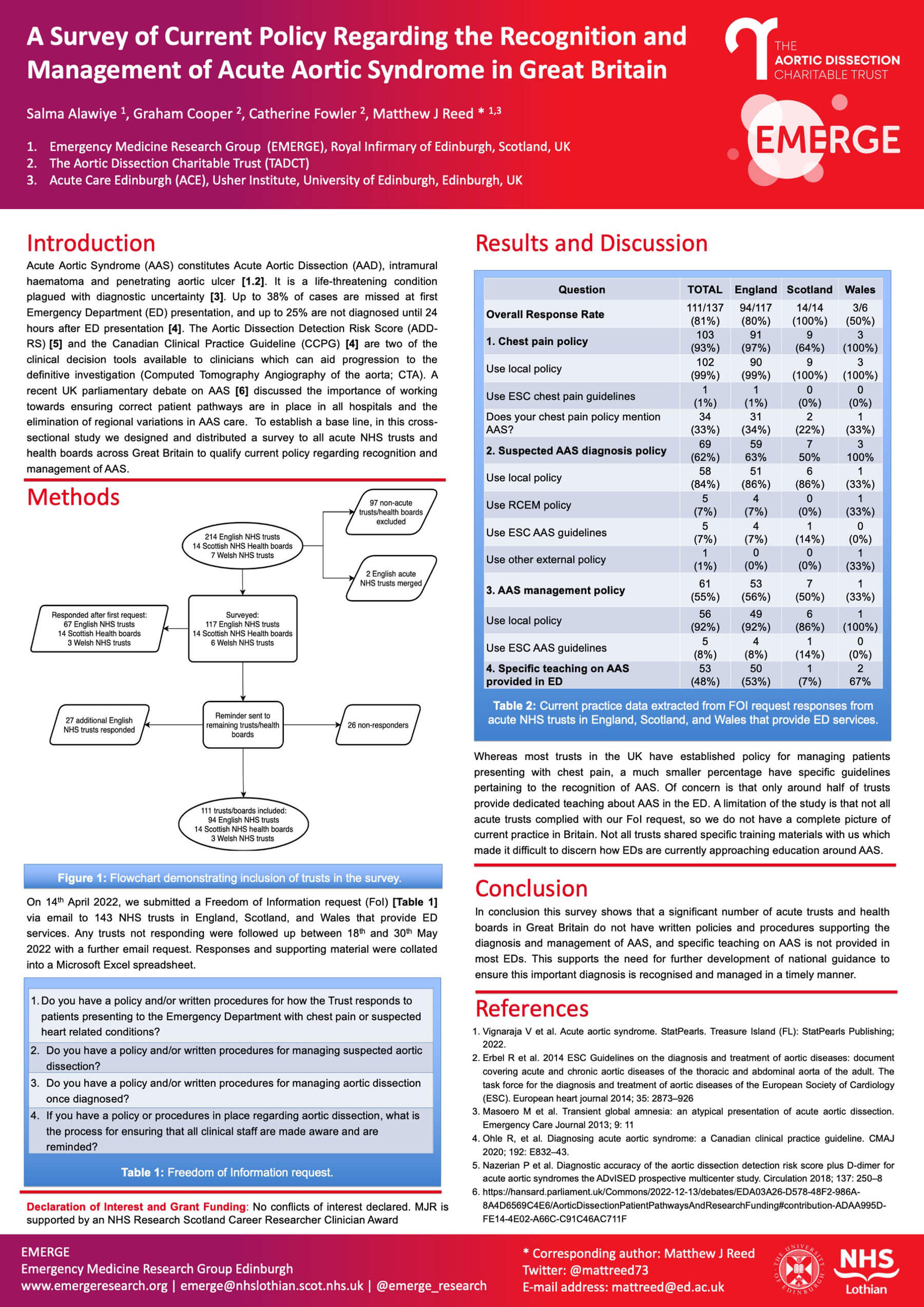Acute Aortic Syndrome (AAS) includes acute aortic dissection, intramural haematoma, and penetrating aortic ulcers. A recent survey, carried out by the Trust, assessed how AAS is managed across NHS trusts in Great Britain, revealing some significant areas for improvement. The findings of the survey were presented at the 2023 RCEM Annual Conference in Glasgow.
Researchers from EMERGE (Emergency Medicine Research Group Edinburgh) conducted the survey by sending Freedom of Information requests to 143 NHS trusts in England, Scotland, and Wales that provide emergency department services. These requests aimed to gather data on current policies, guidelines and educational practices regarding AAS. 111 acute trusts and health boards provided responses.
What Works: General Chest Pain Management
The survey showed that the majority of NHS trusts have established policies for managing patients with chest pain, a common symptom of AAS. This demonstrates a good degree of preparedness in identifying and treating cardiovascular issues.
Areas for Improvement: AAS-specific Policies and Education
On the downside, the survey found that only about half of the trusts have dedicated teaching on AAS for emergency department staff. Furthermore, there’s a lack of uniform policy for the recognition and treatment of AAS specifically. This absence of standardised guidelines and insufficient educational focus could lead to delays in diagnosis and treatment, potentially affecting patient outcomes.
The majority of NHS trusts contacted responded, providing a comprehensive overview of the current landscape. Additionally, even though some trusts did not share their specific training materials, the broad participation still allows for a meaningful evaluation of the state of education provided on AAS.

The Need for Improved Guidelines
Current recommendations fall short. The survey highlights the urgent need for guidelines for AAS management. Although many trusts are equipped to manage chest pain generally, specific expertise and policy for AAS are lacking. Given the condition’s severity and the potential for misdiagnosis, consistent and updated national guidelines would play a critical role in improving patient outcomes.
In summary, while the NHS appears adequately prepared for general cardiovascular emergencies, there are notable gaps in the policy and educational frameworks surrounding AAS. As part of our commitment, the Charity is actively addressing these gaps to ensure timely and effective treatment for this life-threatening condition.
Acknowledgement
Special mention must be made of Ben Andrews. Driven by the tragic loss of his brother Andrew Stevenson, who passed away due to a missed diagnosis of aortic dissection, Ben’s commitment to this research is deeply personal. His brother’s story highlights the vital importance of accurate diagnosis and prompt treatment in cases of AAS. Through diligently gathering data from numerous NHS trusts, Ben has helped to spotlight significant deficiencies in the current approach to AAS management. Ben’s significant contribution, reminding us that behind every data point is a human story that compels us to strive for better healthcare practices.




